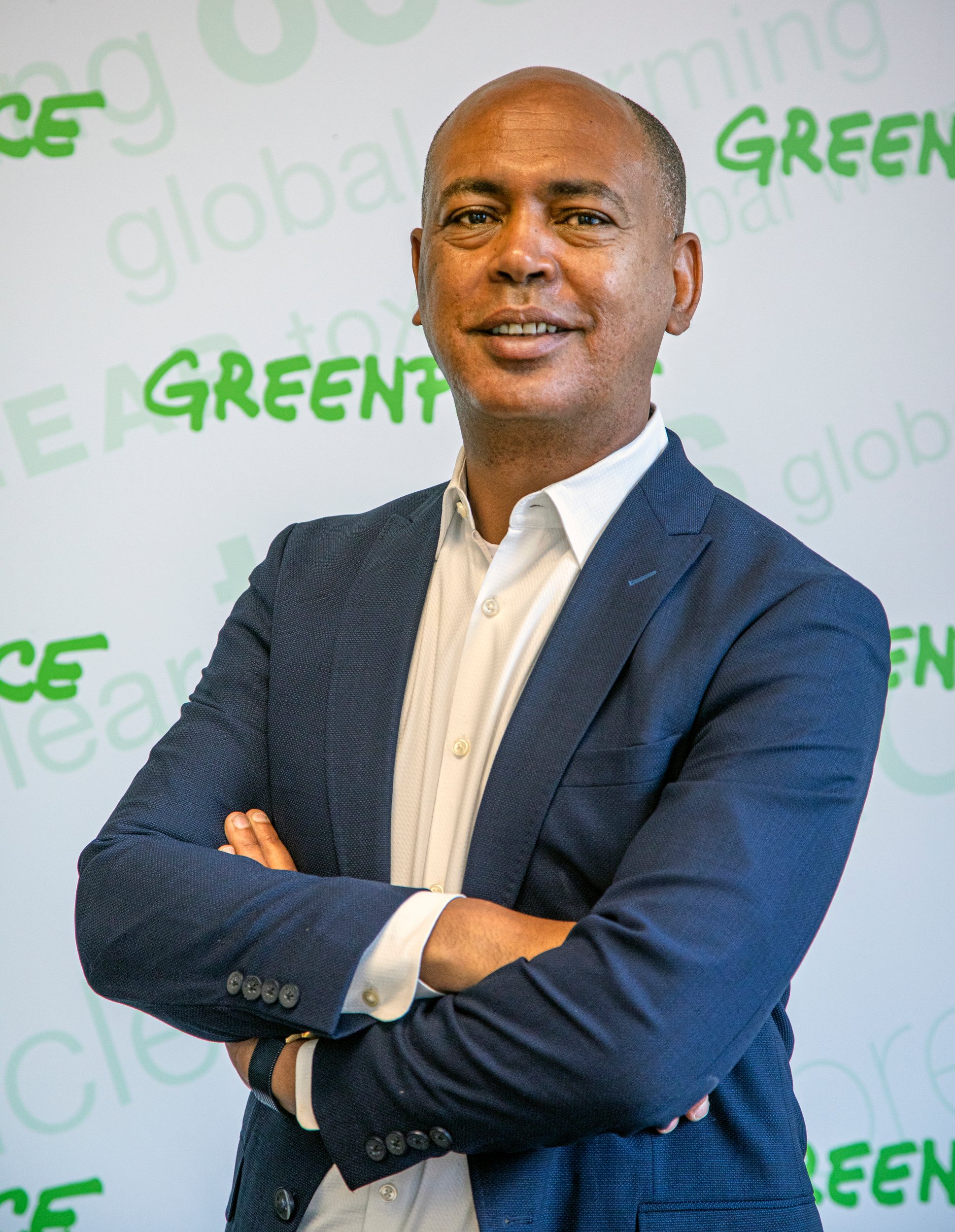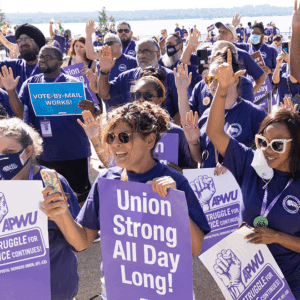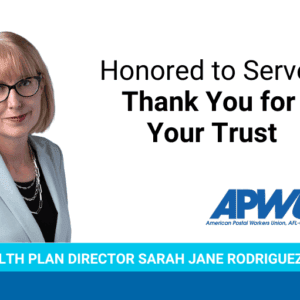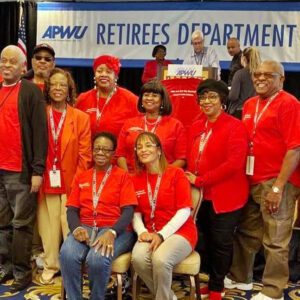July 31, 2024
Interview: Tefere Gebre on Labor and Environmental Justice
The American Postal Worker recently spoke with the Greenpeace USA’s Chief Program Officer Tefere Gebre, who has over 30 years of experience in coalition building, activism, and organizing in the labor movement. He was previously the executive vice president of the AFL-CIO, and became the first immigrant, political refugee, black man, and local labor council leader elected as a national officer of the AFL-CIO, when elected in 2013.
,
 You have a breadth of experience spanning both the labor and environmental justice movements – can you tell readers how those struggles are related?
You have a breadth of experience spanning both the labor and environmental justice movements – can you tell readers how those struggles are related?
They are one and the same. Workers are almost always at the frontlines of corporate driven oppressions and destruction. Workers disproportionately tend to live near the most polluted areas where they are exposed to chemicals that cause great harm to them and their families such as asthma and cancer, that undercut life expectancies. Workers, unions, and organizations have begun pushing for protections on the job, as well as advocacy to address the root causes of the climate crisis. Workers are also the ones [that] respond, at great risk to themselves, to climate disasters such as wildfires, flooding and extreme heat. If we care about jobs, we must first have a planet to work on. There will be no jobs on a dead planet.
One phrase we hear a lot, particularly in regard to organizing around climate change, is the need for a “just transition.” What is that and how could it transform our communities for the better?
“Just Transition” is the need to shift away from toxic fossil fuels to a regenerative and clean energy economy in a way that secures workers’ rights and livelihoods, and ensures communities are protected. History teaches us that past major economic transitions have left workers behind. In order to ensure that the long-fought [battle] for a clean energy transition doesn’t uphold the same systems of oppression and exploitation, its terms must be dictated by workers, labor unions, and broader social movements, not by corporations and the politicians they support.
Energy Transfer, the company behind the Dakota Access Pipeline, has filed a Strategic Lawsuit Against Public Participation (SLAPP) against Greenpeace. What is that and what impacts could it have?
SLAPPs are meritless lawsuits often brought by the wealthy and powerful that are intended to silence criticism, activism, protest, and free speech. Even if SLAPP defendants prevail, they can still lose by being forced to spend time and money defending themselves.
In our case, Energy Transfer is suing for $300 million — an amount that threatens to shut us down — for participating in a protest led by Indigenous organizers. The case also attempts to establish “collective liability” — a dangerous precedent that could hold any group represented at a large protest responsible for the actions of others. Our struggle against this lawsuit is about so much more than Greenpeace and the environmental movement. It could have impacts on every American who wants to exercise their rights to freedom of peaceful expression and peaceful protest.
Why should union members be concerned about SLAPPs?
SLAPPs are a fundamental threat to unions and union members exercising their rights to challenge corporate power. The labor movement was born out of protest. SLAPPs can be used to silence our collective voices by making it impossible to protest for fair wage, workplace safety and shop floor democracy. The spread of corporate overreach tactics, especially SLAPPs, are the greatest threat that unions, environmental defenders and civic society face.
How can we support your work in our communities?
Greenpeace needs APWU members’ solidarity to fight back against corporate greed: The only way we can defeat a trillion-dollar fossil fuel giant is by practicing solidarity. Sign our Open Letter to Energy Transfer and pass it on to your family, friends and coworkers, and stay tuned for updates and follow @Greenpeaceusa on social media to learn about more actions as we head to trial. Beyond the trial, keep in touch so we can build our movements stronger together for healthy and safe communities and a just economic future. ■



